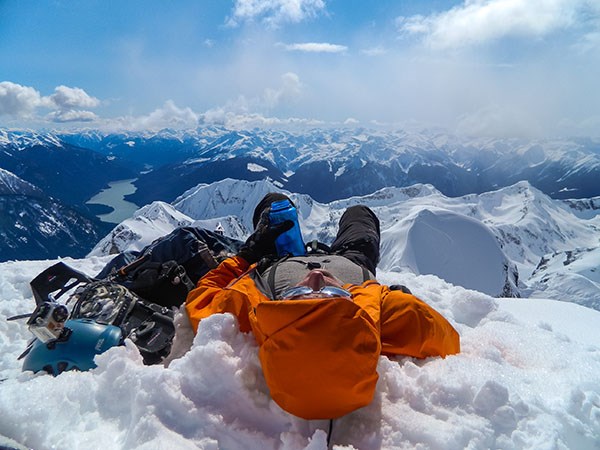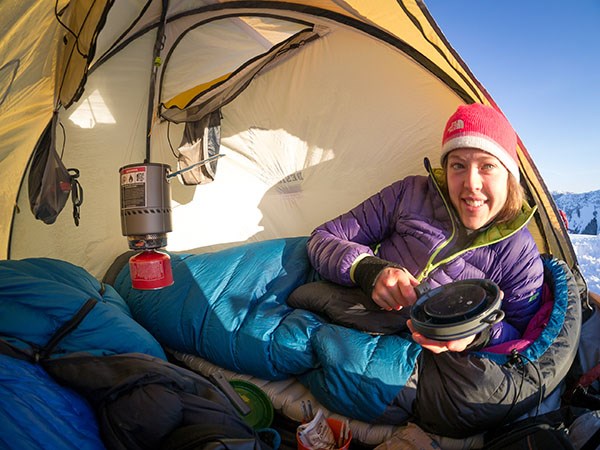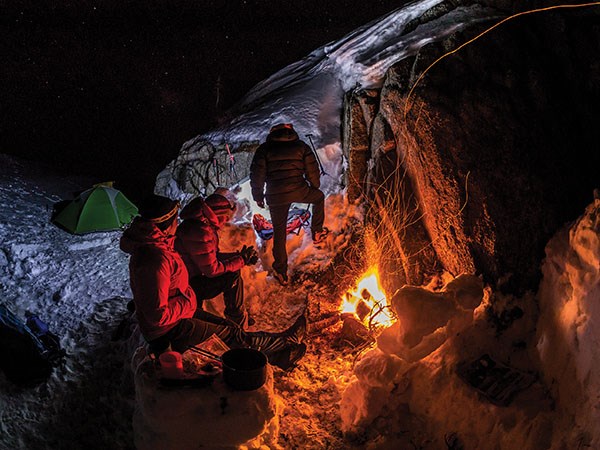“There is no such thing,” the girl behind the counter replied with a confused look on her face. It was a warm, clear day in the summer of 2010. I had just entered the Squamish Adventure Centre, walked confidently up to the information desk and asked which camping- clubs in Squamish teach the skill of camping.
“People just know how to camp here,” she explained.
“It’s what we do, there are no clubs for people to learn camping that I know of.”
She was right: While there are indeed clubs and groups that go camping and backpacking, they usually require that you already know how to camp before joining a trip. It’s unusual, it seems, that somebody can grow up in Canada without having the experience of sleeping in a tent at some point.
My wife, Spring, is from Alberta, and the only camping she ever experienced growing up was usually in a fully serviced campground on a road trip. I grew up in Ireland, where camping is not popular. Some strange people do it, but it’s not common like it is here. I had never slept in a tent before I came to Canada.
Nevertheless, we had been bitten by the sense of adventure that Squamish exudes and, wanting to further explore the wild around our new home, we knew we needed to figure out how to backpack if we wanted to explore deeper than a day’s journey into these mountains so tantalizingly close from the streets and roads around town.
We’d bought all the equipment after doing research online and bugging staff at various outdoor equipment retailers, and after a few dry runs camping at Alice Lake, we felt ready to take our new skills into the mountains.
By the fall of 2010, with the experience of a few backpacking trips, we finally began to feel like we had the hang of it. Then the snow flew.
For many, snow in the hills is a time to pack the tent away and hibernate indoors through the cold and dark months. This was Spring’s culture coming from Alberta, but I convinced her that we had momentum with our explorations into the wild and that winter was no reason to stop.
If it was raining in Squamish, we could simply head into the mountains and keep climbing upwards until we got above the rainclouds. The snow would also make travel easier, I reasoned; we wouldn’t have to deal with dense bush or skirting around lakes, as we could simply cross above all those obstacles on the snow and ice.

What did I, an Irishman, know of the world of snow though? In Ireland it rarely snows most years and rarely gets cold enough to create ice.
Travelling in the mountains through my first Canadian winter was certainly an education. Apart from a course in avalanche safety, we pretty much taught ourselves everything about winter camping through trial and error. I remember being high up on a ridge in a whiteout in knee-deep snow, bitter winds biting against my bare skin, trying to figure out how to use the infernal snowshoes I’d rented the day before.
You learn important things during those experiences, such as the realization that tightening buckles on a snowshoe with numb hands inside big gloves is not pleasant or practical.
Over time we replaced our fleece with down, our soft leather boots with insulated mountaineering boots, and our hiking poles for ice axes and crampons. Eventually we exchanged our tents for sleeping in snow pits covered by a tarp, and recently we’ve changed over from using snowshoes to learning to ski.
We spent a lot of time with people more experienced than us; simply watching how others camp in the winter taught us a lot.
We are by no means experts at it, but we’re comfortable. I don’t fear sleeping on snow or getting too cold when I’m out there. Modern sleeping bags, shelters and clothes make West Coast winters out in the Alpine not only bearable, but enjoyable – so much so that it’s actually my favourite time of year to camp now.
The bugs are gone, the skies are crisp and clear to view the Milky Way overhead at night, and I personally enjoy the challenge of digging out a shelter from the snow, digging out compartments to store our backpacks and making benches from the snow to sit on for dinner.
Through learning to manage the challenges that winter poses, it has allowed us to try other pursuits such as ice climbing, skiing and mountaineering, and with each year that passes we make efforts to become better in all those pursuits.
Winter is not a time for hibernation or to feel glum about the shorter days and bitter cold. It’s not a time to migrate south, either, in search of warmer climes. It’s a time for wild abandon, to flourish and grow in different ways.
Winter means more golden sunlight at dawn and dusk, dry powder snow beneath your snowshoe or ski. You only have to look up and see that the hills are being painted white and shimmering as the clouds break after the rains.
These are our mountains of silence and solitude, where we can feel at one with the mighty forces around us. We’re going there soon, are you?





